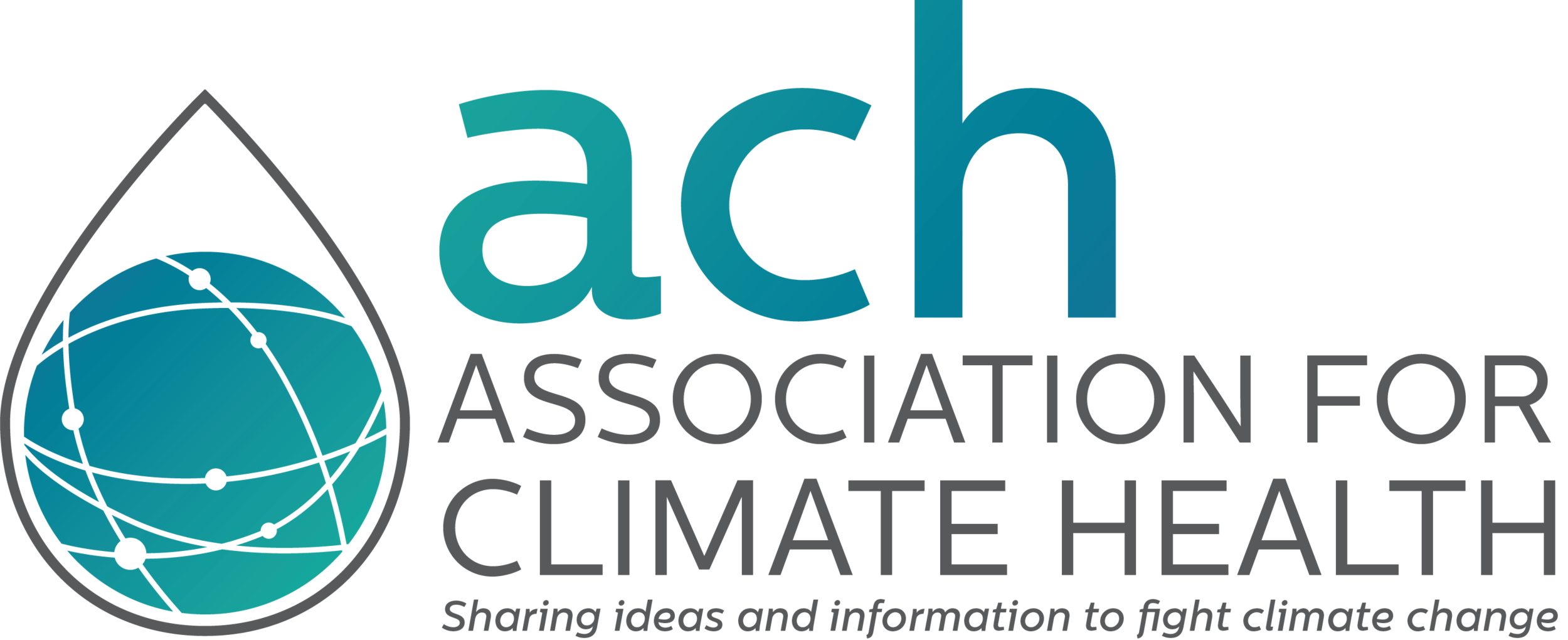Sustainability Resources for Healthcare
“Health care is responsible for 10% of US greenhouse gases, 9% of the country’s air pollution, 12% of acid rain and 10% of smog-forming emissions … It does not have to be this way” - Fortune, September 5, 2019.
Until recently, medicine was mostly about doctors identifying illness and treating the sick. Yet today’s healthcare is becoming more sensitive to the side effects of medicine - not only from medications given to individual patients, but from the impact of health care delivery on the environment. Greenhouse gases and other pollutants spew out from hospitals and clinics; medical waste builds up in landfills and underground water supplies; the production of medicines, medical supplies and equipment create pollution and global warming. Most involved in healthcare prefer to think of themselves as helping, not harming - and so we offer these links and resources for clinics, hospitals, regulators and concerned citizens interested in reducing their carbon footprint and helping local communities achieve climate goals:
Hospitals: Download and read Practice Greenhealth’s 2019 Sustainability Report which is full of good ideas their hospital members have used to reduce their climate impact – and many of them save money! https://practicegreenhealth.org/sites/default/files/2020-06/2019_sustainability_benchmark_data.pdf
Because an outsized percentage of costs, electricity use, etc come from the Operating Rooms of hospitals, Practice Greenhealth has put a spotlight on reducing the carbon footprint from ORs. Get some great ideas from Practice Greenhealth, The Value of Sustainability Initiatives in Surgical Suites, 2018, https://practicegreenhealth.org/sites/default/files/upload-files/2018.gor_.report.pdf
Health Care Without Harm has a free Energy and Health Impact Calculator using EPA and Dept of Energy data on the health impacts from fossil fuel energy use, premature deaths and other health impacts per unit of fossil fuel use at https://calculatehealthimpact.org/
You might also look at the American Hospital Association, Sustainability Roadmap for Hospitals, 2015, http://www.sustainabilityroadmap.org/
Health Research and Educational Trust, Environmental Sustainability in Hospitals: The Value of Efficiency, 2014, http://www.hpoe.org/Reports-HPOE/ashe-sustainability-report-FINAL.pdf
Want some tips on how to present climate-related programs to administrators, community leaders and others who may not otherwise support environmental issues? A thoughtful discussion with examples can be found in Dearing and Lapinski’s article in the December 2020 issue of Health Affairs at https://www.healthaffairs.org/doi/full/10.1377/hlthaff.2020.01170
Planning new construction for your healthcare facility? Keep long term energy costs low by building to LEED standards - https://www.usgbc.org/
Here are some high-return heating and cooling projects for your healthcare facility:
• Schedule regular preventive maintenance to keep systems working at top efficiency
• Energy audits every 2-3 years – heating, cooling, lighting, water heaters, computers etc.
• Your local utility may provide this
• Or do it yourselves with free training from the AHA’s https://www.energytocare.org/educational-tools
• Implement energy conservation programs from audit results
• When replacing equipment, select from Energy-Star labelled choices
• Create a contest inviting employees to share their energy and waste reducing ideas. Provide recognition and/or rewards for all good ideas
• Renewable energy projects can lock in low energy costs for years to come
Some quick ideas on how to cut healthcare facility waste and waste disposal costs:
Increase reuse of clinical products and equipment
Increase reusable sharps use
Increase recycling of medical plastics – bottles, basins, trays, blue wrap, etc.
Increase donation of used furniture, linens, outdated equipment & supplies
v Ask your staff for local nonprofits and schools that can use those discards
Disinfect regulated medical waste onsite (autoclave or other technology)
Recycle, reprocess and reduce buying of new solvents, alcohols and other chemicals for hospital labs
Make double-sided printing the default setting for copies and printers
Make electronic copies your go-to instead of paper reports
v Ask your staff to suggest more ways to cut back
Reduce food waste through donations of uneaten foods, composting, emphasis on tap water instead of bottled
Recycling and reusing medical equipment, supplies and devices: Consider sending single-use devices for reprocessing and consider buying reprocessed single-use devices – major cost savings and reduced climate impact. Yet these items meet or exceed safety standards. For more info, see http://amdr.org/
Emissions from anesthesia used in operating rooms is one of the biggest and least regulated sources of greenhouse gas. Read the Association for Climate Health, White Paper on Anesthesia as a Greenhouse Gas, 2020, https://www.a4ch.org/publications
Read how one healthcare system reduced their carbon footprint - Health Partners, Commitment to Sustainability, 2019, https://www.healthpartners.com/content/dam/brand-identity/pdfs/corporate/HP-Sustainability-Report-B2B-B2C-2019.pdf
The American Lung Association has information on how climate change affects lung health at https://www.lung.org/clean-air/climate-change
The American Public Health Association has a page on climate issues for health care professionals who want to be able to communicate about climate and advocate for change in their workplace and their community. This includes their Moving Forward Toolkit https://climateforhealth.org/moving-forward-toolkit/. They also have materials on climate and health equity issues for communities at https://apha.org/topics-and-issues/climate-change/center
The Association for Climate Health has two great slideshows for health care professionals
· Anesthesia as a Greenhouse Gas
· How Hospitals Can Save Money and be Climate Leaders
Contact us for a free presentation to any government, healthcare or public health audience!

